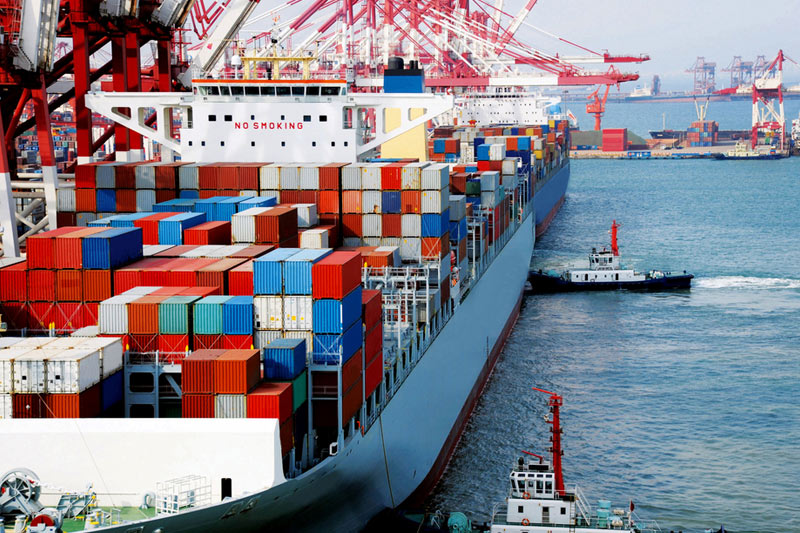By David Brunnstrom and Matt Siegel
NEW DELHI/SYDNEY (Reuters) - U.S. Secretary of State John Kerry told Prime Minister Narendra Modi on Friday that India's refusal to sign a global trade deal sent the wrong signal, and he urged New Delhi to work to resolve the row as soon as possible.
A World Trade Organisation pact to ease worldwide customs rules collapsed late on Thursday over India's demands for concessions on agricultural stockpiling.
"Failure to sign the Trade Facilitation Agreement sent a confusing signal and undermined the very image Prime Minister Modi is trying to send about India," a U.S. State Department official told reporters after Kerry's meeting with Modi.
Kerry was in New Delhi as part of an annual strategic dialogue to revitalise ties and lay the ground for a visit by Modi to Washington in December.
The official said the meeting was "strong and positive" despite the breakdown at the trade talks in Geneva.
Several WTO member states voiced frustration after India's demands led to the collapse of the first major global trade reform pact in two decades. WTO ministers had already agreed the global reform of customs procedures known as "trade facilitation" in Bali, Indonesia, last December, but were unable to overcome last minute Indian objections and get it into the WTO rule book by a July 31 deadline.
"We have not been able to find a solution that would allow us to bridge that gap," WTO Director-General Roberto Azevedo told trade diplomats in Geneva, just two hours before the final deadline for a deal lapsed at midnight (2200 GMT Thursday).
Most diplomats had expected the pact to be rubber-stamped this week, marking a unique success in the WTO's 19-year history which, according to some estimates, would add $1 trillion and 21 million jobs to the world economy.
They were shocked when India unveiled its veto and the eleventh-hour failure drew strong criticism, as well as rumblings about the future of the organisation and the multilateral system it underpins.
"Australia is deeply disappointed that it has not been possible to meet the deadline. This failure is a great blow to the confidence revived in Bali that the WTO can deliver negotiated outcomes," Australian Trade Minister Andrew Robb said on Friday. "There are no winners from this outcome – least of all those in developing countries which would see the biggest gains."
Kerry held out hope that there was a way forward that both addressed India's concerns about its food security programme as well as advance global trade liberalisation.
India had insisted that, in exchange for signing the trade facilitation agreement, it must see more progress on a parallel pact giving it more freedom to subsidise and stockpile food grains than is allowed by WTO rules.
India's new nationalist government has insisted that a permanent agreement on its subsidised food stockpiling must be in place at the same time as the trade facilitation deal, well ahead of a 2017 target set in Bali last year.
MOVE ON WITHOUT INDIA
Some countries have already discussed a plan to exclude India from the facilitation agreement and push ahead regardless.
An Australian trade official involved in the talks, who requested anonymity to speak more candidly, said officials were exhausted with the process and that there was already discussion about major reforms at the WTO and the Doha Round of trade negotiations, which began in 2001.
"Some see it as a final trigger for ending Doha and pressing ahead with plurilateral reform, leave behind those that don't want to come along," he said.
Some nations, including the United States, the European Union, Australia, Japan and Norway, have already discussed a plan to exclude India from the agreement and push ahead, officials involved in the talks said.
A Japanese official familiar with the situation said that while Tokyo reaffirmed its commitment to maintaining and strengthening the multilateral trade system, it was frustrated that such a small group of countries had stymied the overwhelming consensus.
"The future of the Doha Round including the Bali package is unclear at this stage," he said.
New Zealand Minister of Overseas Trade, Tim Groser, told Reuters there had been "too much drama" surrounding the negotiations and added that any talk of excluding India was "naive" and counterproductive. "India is the second biggest country by population, a vital part of the world economy and will become even more important. The idea of excluding India is ridiculous."
"I don't want to be too critical of the Indians. We have to try and pull this together and at the end of the day putting India into a box would not be productive," he added.
Still, the failure of the agreement should signal a move away from monolithic single undertaking agreements that have defined the body for decades, Peter Gallagher, an expert on free trade and the WTO at the University of Adelaide, told Reuters.
"I think it's certainly premature to speak about the death of the WTO. I hope we've got to the point where a little bit more realism is going to enter into the negotiating procedures," he said.
"It's 153 countries. We can't all move at the same speed on the same things, and it's time to let those that want to do it, do it."
(Additional reporting by Rajesh Kumar Singh, Manoj Kumar and Sanjeev Miglani in New Delhi, Linda Sieg in Tokyo, Gyles Beckford in Wellington and Krista Hughes in Washington DC; Editing by Ian Geoghegan)
